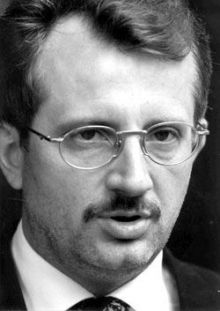Good news! Last week’s EU summit in Brussels has confirmed the European Commission’s proposal on the Eastern Partnership - a joint Polish-Swedish initiative aimed at upgrading EU’s relation with its Eastern neighbours.
The proposal suggests, among others, creation of free trade areas, signing of association agreements, visa free regime in a long term perspective and additional 600 millions EUR until 2013.
Earlier, on December 3, while presenting Commission’s communication on the project, President Jose Manuel Barroso confirmed my words written here in this column in September, by stating that conflict in Georgia has brought about a rapprochement between EU and the six nations the proposal is addressed to (Ukraine, Moldova, Azerbaijan, Armenia, Georgia and Belarus). “The Member States are engaged in developing of Eastern Partnership, because we want stability and effective governance at our Eastern neighbours; we do not want to take risk” - said Barroso.
“The EU is for them a symbol of welfare and they want to get closer to us.” He continued by saying that the EU as a growing player on the international scene wants the Eastern Partnership as its “soft power” to bring these countries, to promote stability and welfare as well as to promote “democracy” as the Europeans see it.
The presented document does not give however any membership perspective. Barroso acknowledges the countries’ European aspirations and says that the EU wants to help them to be closer to the Community. “This is however the maximum, which we can offer them. Today, there is no unanimity in regard to starting membership negotiation. But we do not exclude such situation in the future” - he added.
Referring specifically to Ukraine, Barroso called her avant-garde among the EU’s Eastern neighbours and reiterated that EU leaves its doors opened but cannot give more at the moment.
What one should make out of it? First of all, the document is still a general framework, does not include concrete project proposals. These, should be known when the Eastern Partnership will be officially adopted by the EU foreign ministers in spring 2009. Of course, we should not expect any revolution, but we can be cautiously optimistic. The good news for Ukraine is that the ENP is dead and those handling Eastern Partnership understand the reasons behind the failure of the previous approach and know that the new one must give real incentives to our partners in the East. As always they will not be enough, especially at the time of crisis, but we should expect a move forward.
Apart from positive external impulses, which make me relatively optimistic in regards to the Eastern Partnership, is the internal EU dynamics. It may also contribute to a positive development in this area. I have in mind the coming consecutive EU presidencies of Czech Republic and Sweden, which naturally will be dedicated to this project. It may be crucial, since it is exactly the time, when the proposal will be gaining a real shape.
I would of course prefer the EU membership perspective for Ukraine being engraved in the document, but we must be realistic and know that nothing more could have happened. Nevertheless, the EU machinery has been moved and the Eastern Partnership, despite political situation in Ukraine, is slowly starting to live on its own. Hopefully, soon it will be a full fledged EU policy, with concrete tools and instruments to really bring Ukraine and countries alike closer to the EU.
The last but not least, the Eastern Partnership is a project a la carte. The countries participating will be able to choose what they are interested in. For example Azerbaijan will have a different set of priorities than Moldova. The success of this endeavour will also very much depend on the activeness of participants and the demands as well as expectations they will put forward to the cook. If one doesn’t want to eat what he is being served, he needs to ask the waiter for alternatives. Under one condition however - everyone knows however that if we are in a French restaurant, we should not expect Chinese food.







